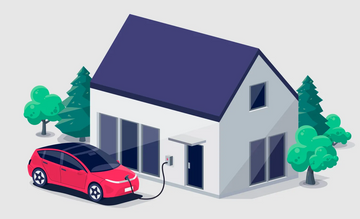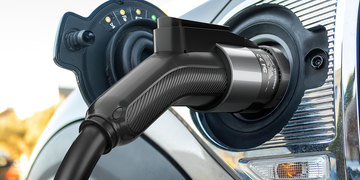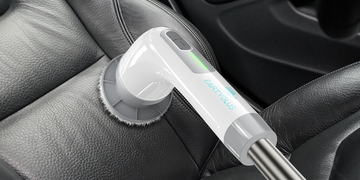What power do you need for home EV charging? You can charge your electric car using standard 120 volt(V) home outlets (Level 1), 208-240V outlets like those used by your dryer (Level 2), or dedicated 480V+ public fast chargers (DC Fast Charging).
Home charging allows EV owners to start each day with a full battery, ensuring a seamless and sustainable driving experience. One key consideration for home EV charging is understanding the power requirements, as different charging levels and equipment come with varying energy needs.
Levels of Charging:
There are three main levels of EV charging, each offering different charging speeds and power requirements:
Level 1 (120V AC):
This is the most basic form of home charging and utilizes a standard household electrical outlet.
Level 1 charging is suitable for plug-in hybrid vehicles and provides a slow charging rate.
The typical power draw for Level 1 charging ranges from 1.4 to 1.9 kilowatts (kW).
It is commonly used for overnight charging, allowing for a fully charged EV by morning.

Level 2 (240V AC):
Level 2 charging is a more advanced and faster option for home charging, commonly installed by electricians.
The power draw for Level 2 charging can range from 3.3 kW to 19.2 kW, depending on the charging station and the EV's capacity.
This level is suitable for most electric vehicles and is ideal for homeowners looking for a faster charging experience.
Level 3 (DC Fast Charging):
Level 3 charging stations are high-powered, fast chargers typically found in public charging stations.
These chargers can deliver a significant amount of power, often exceeding 50 kW and going up to 350 kW.
Level 3 chargers are less common in residential settings due to their higher cost and complexity.
Choosing the Right Level for Your Home:
Selecting the appropriate level of charging for your home depends on your EV model, driving habits, and desired charging speed. Plug-in hybrid owners with smaller battery capacities may find Level 1 charging sufficient for their needs, especially if they have the flexibility of overnight charging.
For pure electric vehicle owners or those seeking faster charging times, Level 2 charging is often the preferred choice. However, before installing a Level 2 charging station at home, it's crucial to assess your home's electrical capacity.
Considerations for Installation:
Before installing a home charging station, consult with a licensed electrician to ensure that your home's electrical system can accommodate the additional load. The installation of a Level 2 charger may require a dedicated circuit with a 240V outlet, and the electrician will ensure compliance with local electrical codes for safety and efficiency.
What power do you need for home EV Charging? Understanding the power requirements for home EV charging is essential for a seamless and efficient charging experience. Whether opting for the simplicity of Level 1 charging or the faster speeds of Level 2, careful consideration and professional consultation will ensure that your home charging setup meets both your needs and safety standards. As electric mobility continues to evolve, investing in an appropriate home charging solution contributes to a sustainable and environmentally friendly transportation future.





